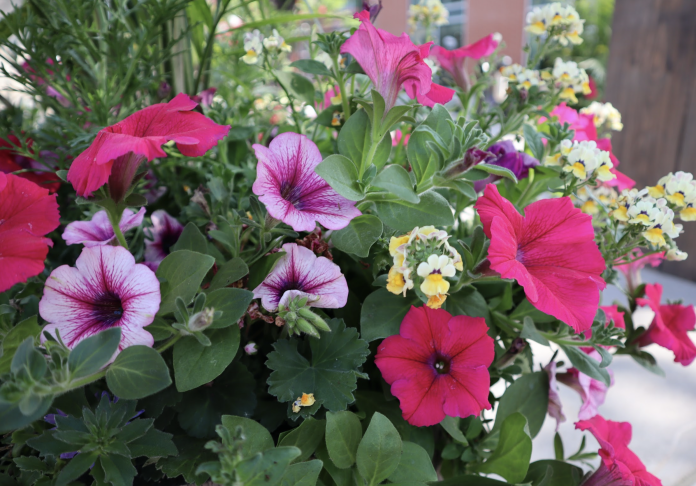By Daria Maystruk
For Manju Sah, 20 years of hard work has culminated in a colourful display of flowers wrapping around her home.
Though her garden initially served as an additional privacy feature to her corner-lot home, it has since evolved into a bird and neighbour-friendly paradise. Planting flowers has been “a labour of love” for Sah just as much as it has been for her community which has helped her build her garden from the beginning.
“This is my little oxygen space that is helping keep the air clean, and it gives people pleasure,” Sah said. “[Gardening] gives us a moment of calm. It makes you slow down because life is stressful enough as it is. For me, these are moments of reflection.”
However, Sah said this year’s periods of drought and record-high heat brought unique challenges to both her garden and herself, even though she felt relieved with more frequent rain in June and July.
“In recent years we have seen more extreme weather events, and it’s hard to know from one year to the next how things are going to fare,” she said. “When we had that drought period, I’m embarrassed at my water bill. The plants really suffered with the drought. And even though I wanted to, I couldn’t really water as extensively as they needed.”
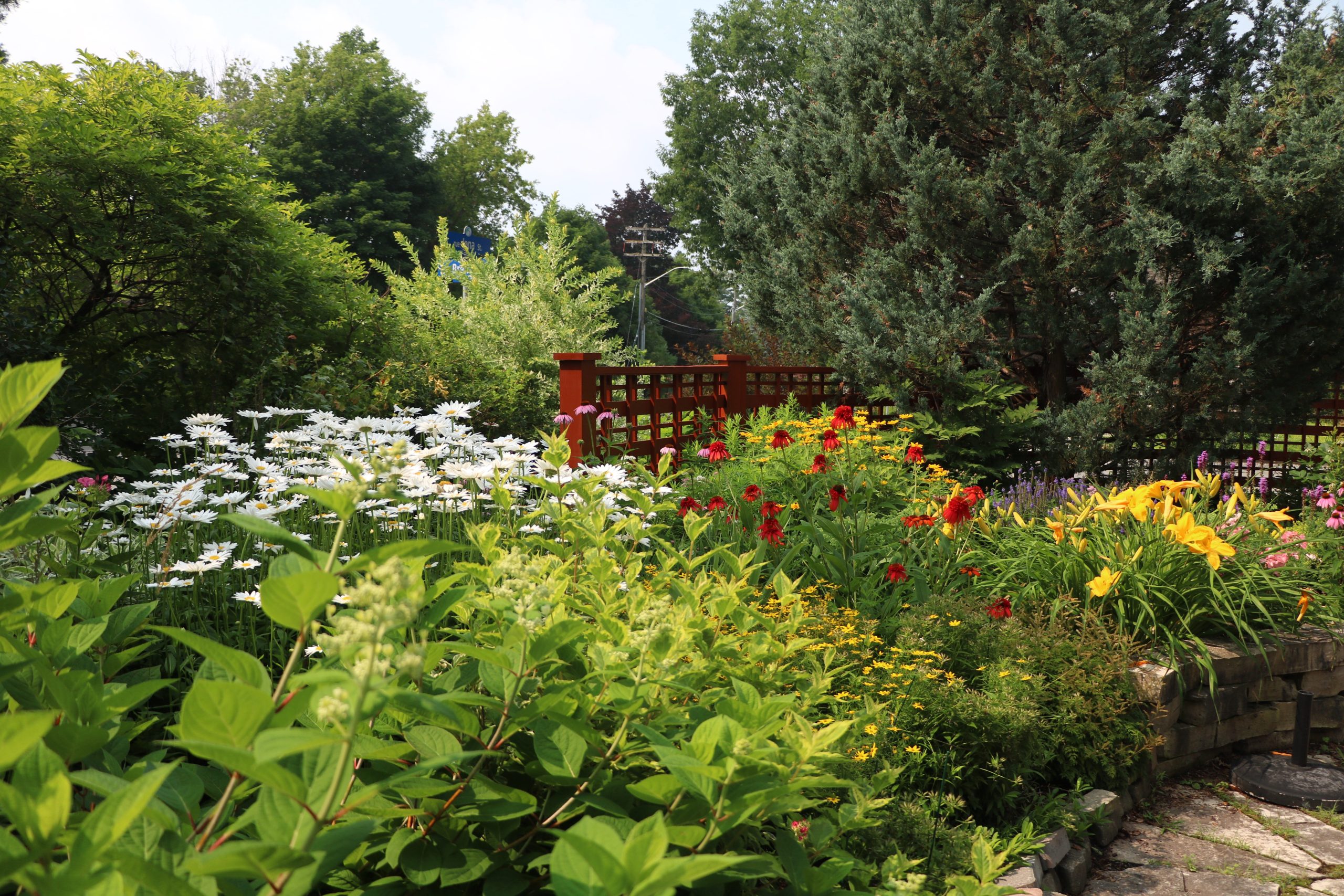
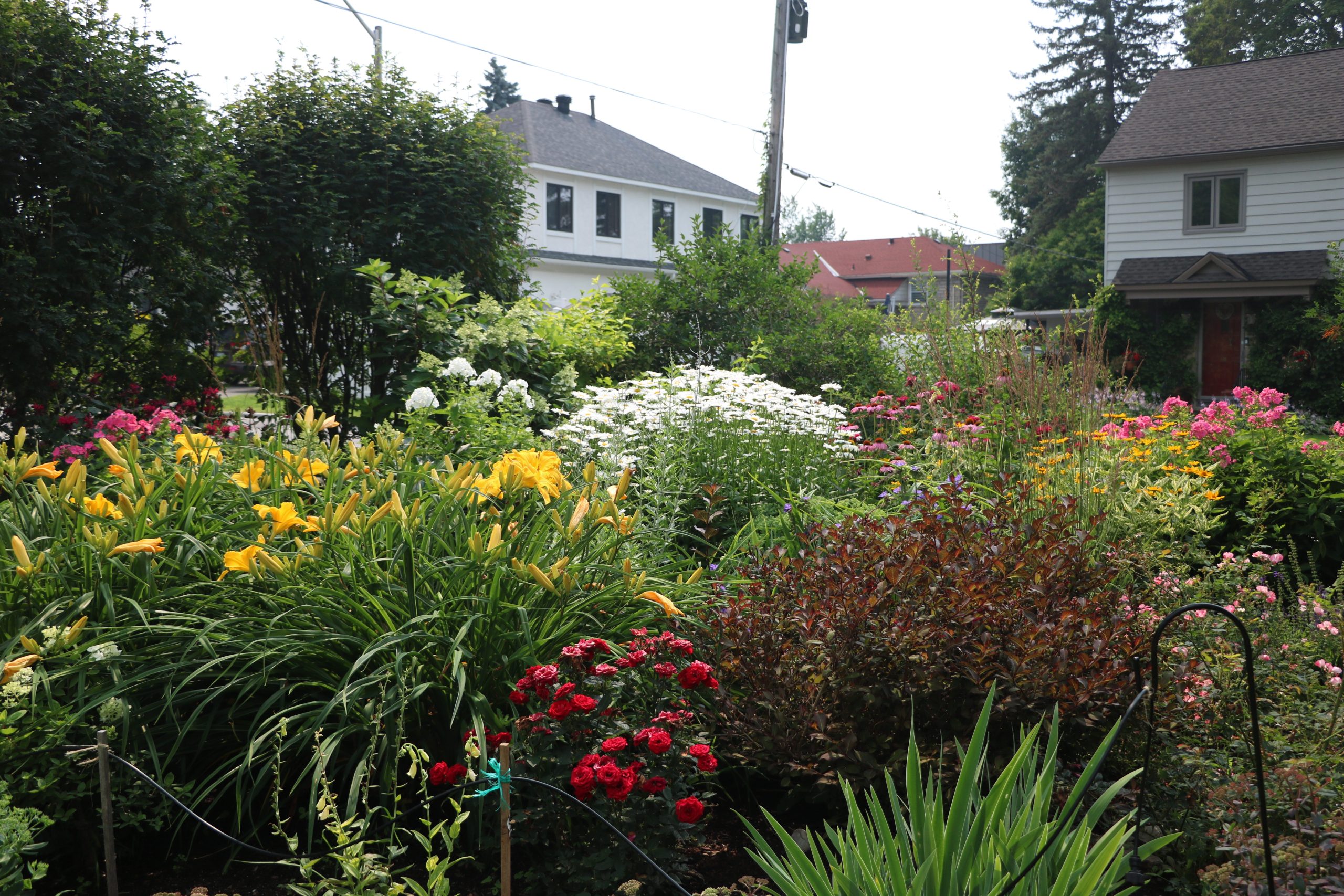
Unpredictable weather is also creating challenges for the Ottawa Flower Market Collective, which sources flowers from nine local female-owned farms around Kemptville and sells them monthly at the Parkdale Market.
Meagan Warren, owner of flower farm Wildling Acres and member of the Ottawa Flower Market Collective, said farmers are relying on strategies to overcome periods of frost and thaw during spring.
Some of these strategies include planting a variety of different flowers and relying on the collective they formed this year.
“The nice part is just the fellowship the nine of us have together. You’re all pulling each other along and are able to give advice,” she said. “[This year] we were all doing the 14-day forecast and just texting amongst the group. But that’s just part of the seasonality of farming. I think the more years you have under your belt, the better you are to deal with that.”
Through the support of their community, Warren said the Ottawa Flower Market Collective has also experienced increased customer traffic in addition to their “diehard people” who have been attending the market for their approximate five years of business.
Just as sales of flowers have increased for the Ottawa Flower Market Collective, support for businesses such as Les Serres Robinson Greenhouses have also seen a spike since the start of the pandemic, according to co-owner Brigit Robinson.
The family-owned business sells plants and locally-sourced produce every day in the heart of the Parkdale Market. Robinson said the business’s sales have been steady over the past few years, with sales increasing for tropical plants since the COVID-19 pandemic.
“[During] the pandemic, instead of looking for a place to go to have a cocktail at night, people made their garden look nice, so we’re selling a lot more,” she said.
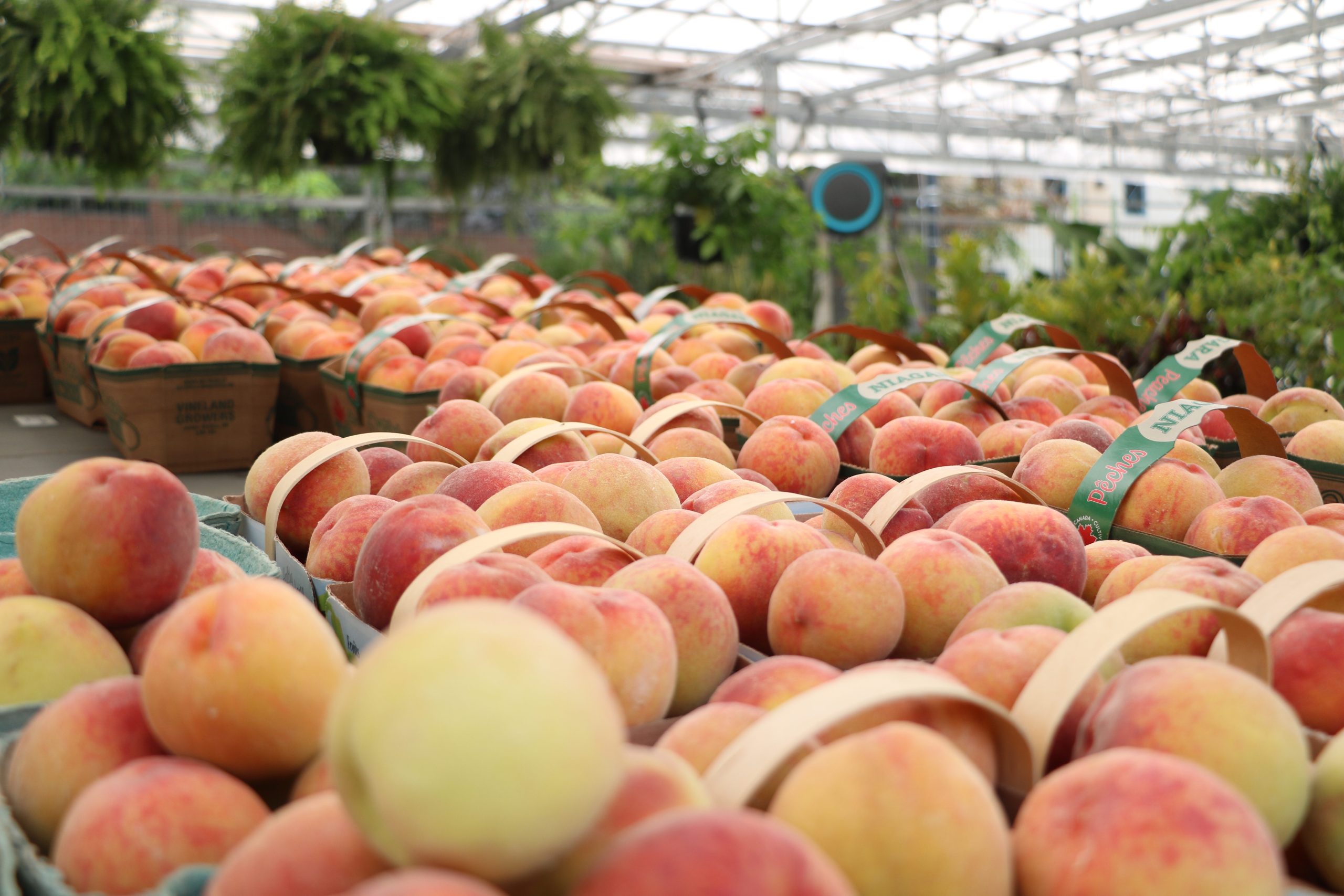
The business has also seen high demand for the fruits and baked goods it sources from other family-owned farms.
“During the peach season, we bring back [and sell] 253 feet of peaches weekly,” Robinson said. “It’s our second year [and] we sell 1,500 pies a week.”
One key to the business’s success may rest in its relatively low price point amid inflation. By sourcing fruits and vegetables from farming families across Ontario and Quebec and by using their own trucks, the business has kept its prices “pretty much always the same” over three generations, according to Robinson.
For at-home gardeners including Sah, inflation represents another challenge to unpredictable weather patterns.
“My garden, I think, is more expensive than my house,” she said with a laugh.
However, Sah said she still happily continues to prioritize the health of her garden and is able to lower the cost of gardening by dividing her larger plants into new spots.
“I’m happy to have plants that I can divide. Whatever extra money I have just goes into maintaining the garden, but I love it. I’d love to stay on soup and bread just to keep my garden alive.”
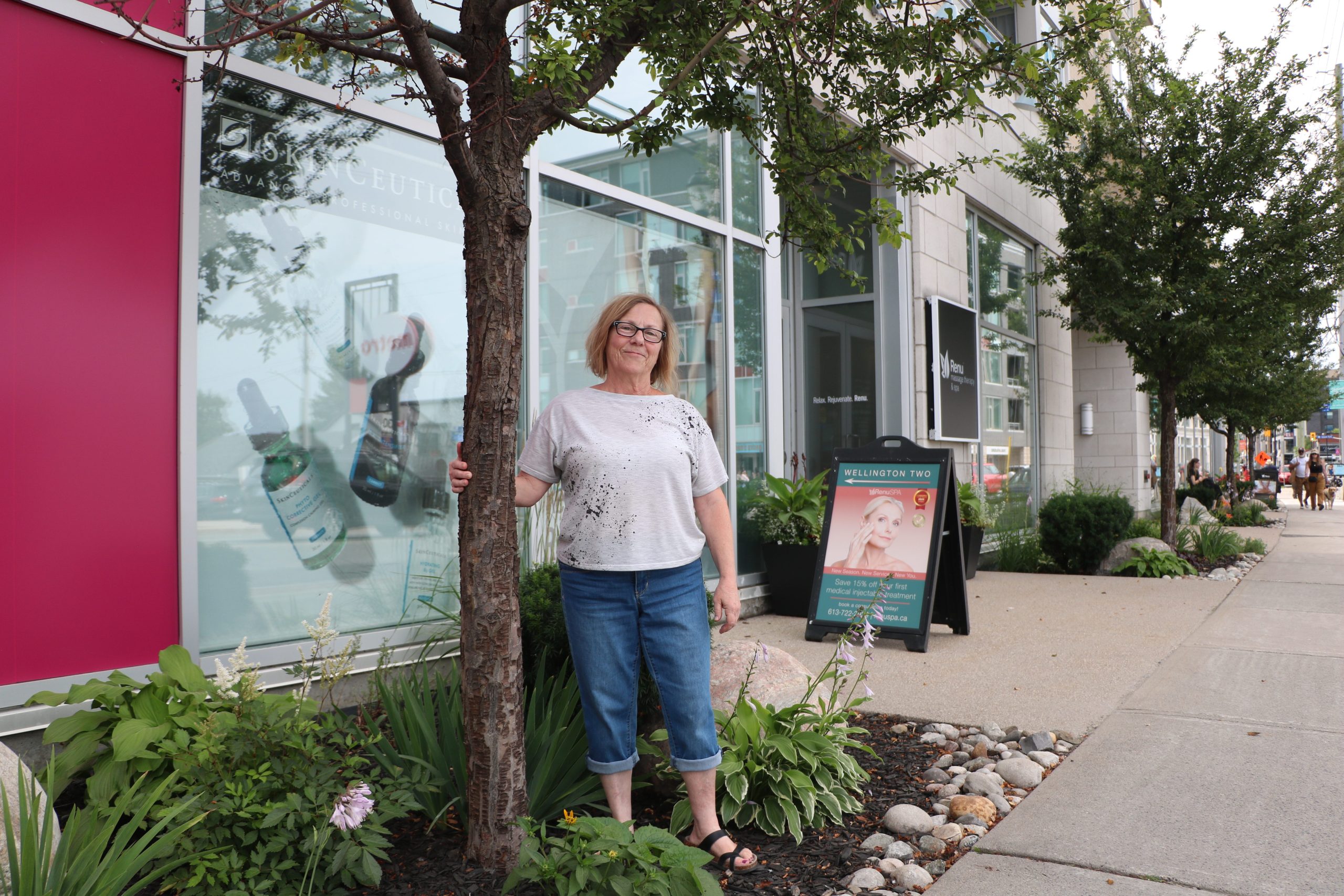
Carolyn Ayotte, a horticulturalist who tends the gardens on the corner of Piccadilly Avenue and Wellington Street, said dividing plants is an easy solution to avoiding high prices at garden centres.
“It’s also healthy for them because you’re rejuvenating [the plants] by dividing,” Ayotte said. “And you can give them to friends and neighbours so it’s just a win-win.”
Ayotte was recently awarded a grant from the Ontario Horticultural Society to develop a pollinator garden on Piccadilly Avenue. She said the project is currently on hold due to city construction, but she will continue planting next year and recommends others plant their own gardens.
“Urban pollinator gardens are really important because we’re not going to be able to eat if we don’t have pollinators—that’s what we need to create food,” Ayotte said. “If everybody did a little chunk on their lawn or in their garden, we’d be laughing.”
